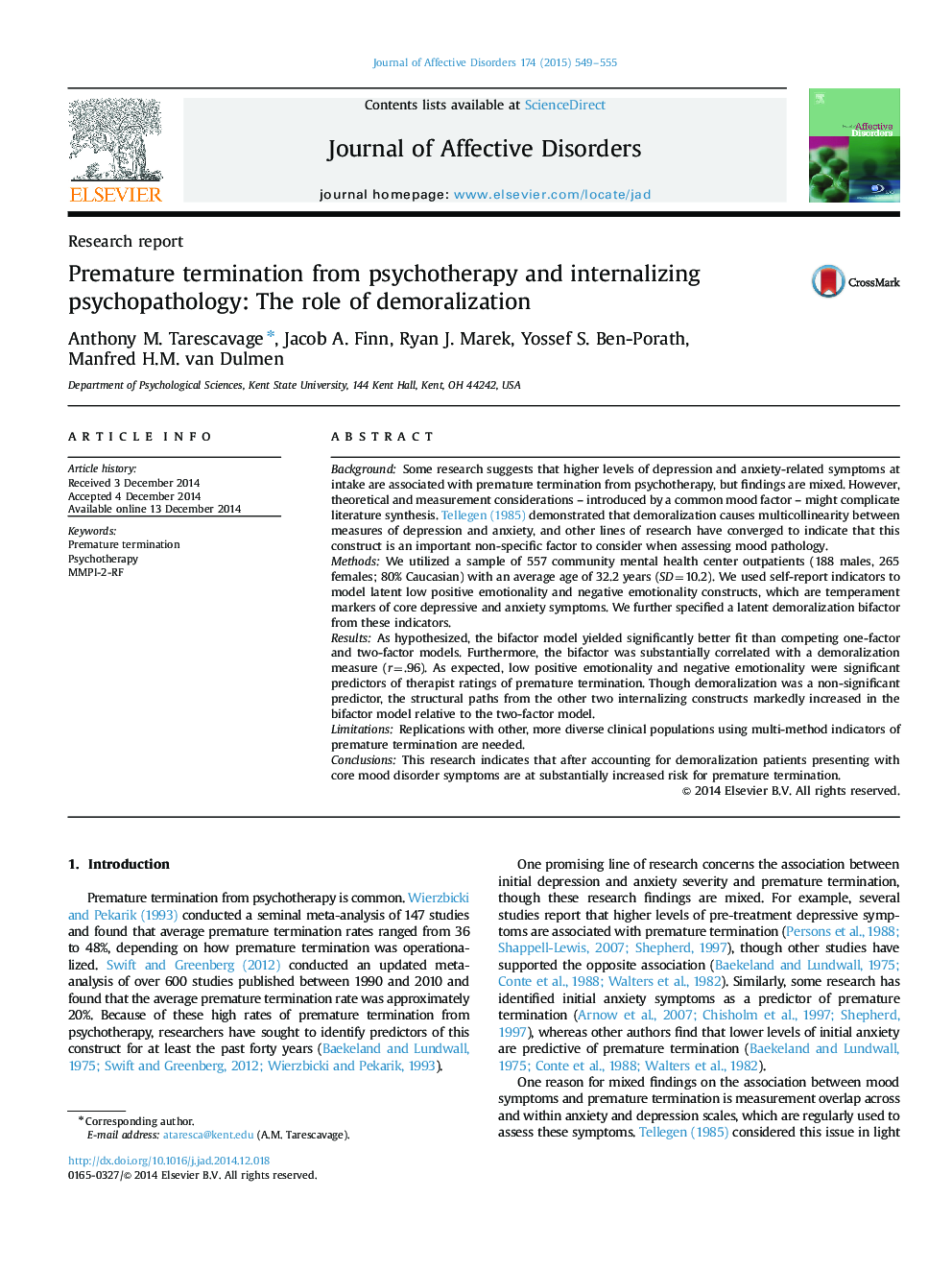| Article ID | Journal | Published Year | Pages | File Type |
|---|---|---|---|---|
| 6231775 | Journal of Affective Disorders | 2015 | 7 Pages |
BackgroundSome research suggests that higher levels of depression and anxiety-related symptoms at intake are associated with premature termination from psychotherapy, but findings are mixed. However, theoretical and measurement considerations - introduced by a common mood factor - might complicate literature synthesis. Tellegen (1985) demonstrated that demoralization causes multicollinearity between measures of depression and anxiety, and other lines of research have converged to indicate that this construct is an important non-specific factor to consider when assessing mood pathology.MethodsWe utilized a sample of 557 community mental health center outpatients (188 males, 265 females; 80% Caucasian) with an average age of 32.2 years (SD=10.2). We used self-report indicators to model latent low positive emotionality and negative emotionality constructs, which are temperament markers of core depressive and anxiety symptoms. We further specified a latent demoralization bifactor from these indicators.ResultsAs hypothesized, the bifactor model yielded significantly better fit than competing one-factor and two-factor models. Furthermore, the bifactor was substantially correlated with a demoralization measure (r=.96). As expected, low positive emotionality and negative emotionality were significant predictors of therapist ratings of premature termination. Though demoralization was a non-significant predictor, the structural paths from the other two internalizing constructs markedly increased in the bifactor model relative to the two-factor model.LimitationsReplications with other, more diverse clinical populations using multi-method indicators of premature termination are needed.ConclusionsThis research indicates that after accounting for demoralization patients presenting with core mood disorder symptoms are at substantially increased risk for premature termination.
